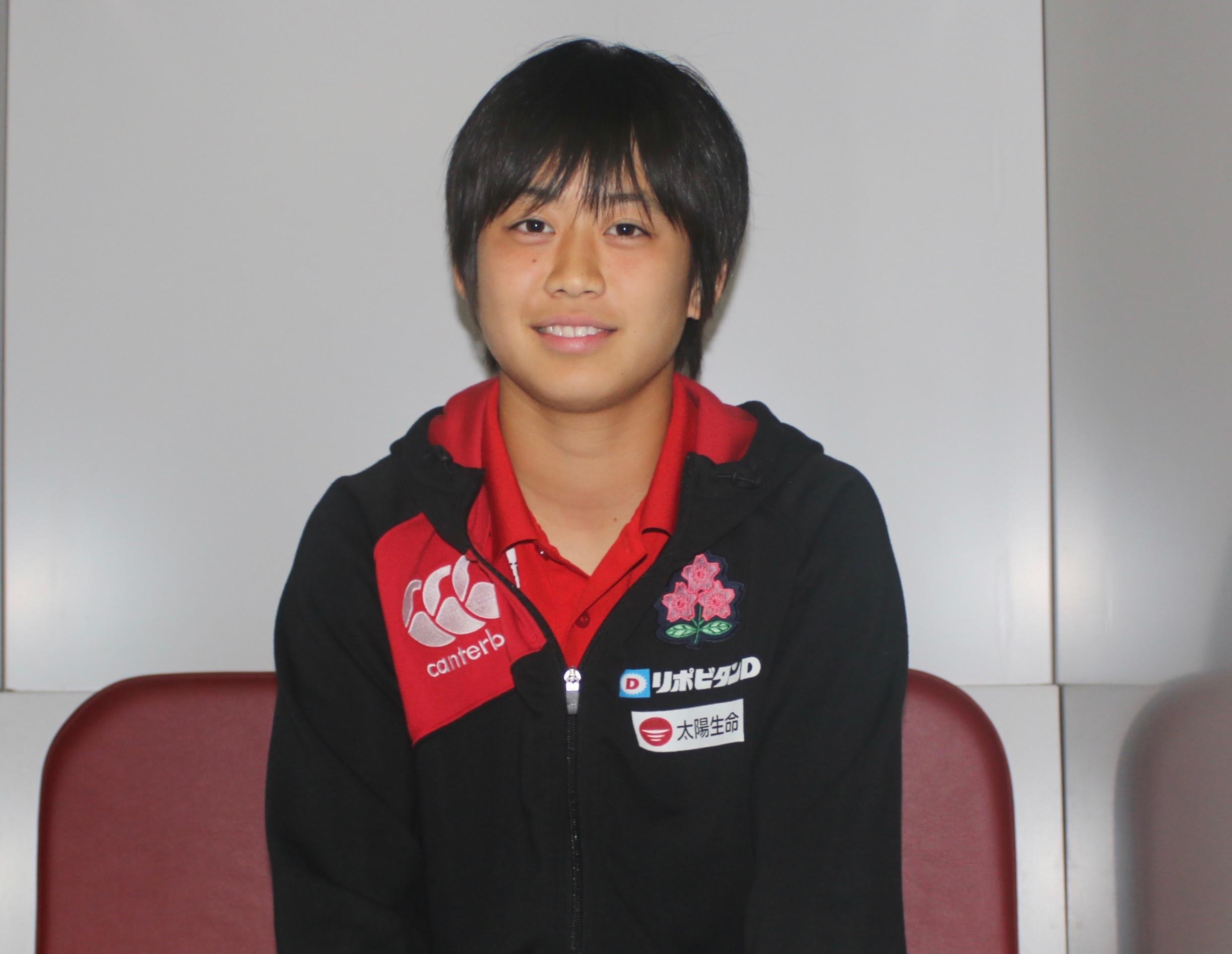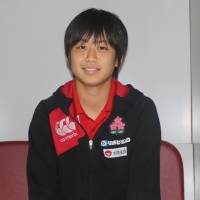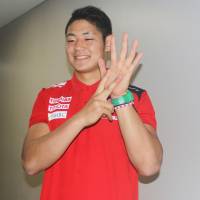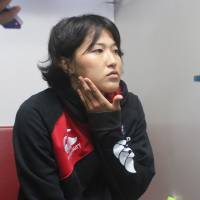The Japan men's national team's successful run at the Rugby World Cup has inspired the nation's entire rugby circle.
As a result, both the men's and women's national sevens rugby squads, which will compete in their Asian qualifiers for the 2016 Rio de Janeiro Olympics next month, feel that they have obtained extra courage and motivation toward their own battles.
"I was definitely inspired," said Kazuhiro Goya at a media availability at Prince Chichibu Memorial Ground on Tuesday during the men's team training camp for the Nov. 7-8 Asian qualifying in Hong Kong. "I think like it's our turn now."
Goya, a senior at Ryutsukeizai University, added that defense would be important for the sevens team to earn an Olympic berth in the qualifiers, and he realized that by watching the Brave Blossoms' efforts in England.
"Their (the Japan rugby union team's) defense was excellent," Goya said.
The men's sevens team will include a few players who competed at the World Cup. Yoshikazu Fujita, who had a try in Japan's 28-18 win over the United States in their final group stage game, has felt that rugby has become enormously popular after the Brave Blossoms' contests at the RWC.
"It's on television with our players every day," Fujita said, smiling. "A rugby boom is really hitting Japan right now. So if we come up with positive results now, people absolutely pay attention. We're not going to do it to become famous, but we want to win (in the Asian qualifying) to compete in the Olympics so we can move the Japanese audience."
Although the Rugby World Cup is the sport's flagship tournament, Fujita said that making it to the Olympics would have a different meaning.
"It's the biggest sporting event in the world," said Fujita, a Waseda University student. "Like we did through the World Cup this time, we would like to promote Japanese rugby by reaching the Olympics and perform in the way to excite Japanese people.
"And hopefully, I can capitalize on the experience I had through this World Cup for the Olympics."
Beside Fujita, wing player Kenki Fukuoka, another collegiate player who was on Eddie Jones' World Cup squad is also scheduled to participate in the upcoming training camp. Brave Blossoms captain Michael Leitch might follow as well, but his situation is uncertain.
Meanwhile, the members of the women's rugby sevens team, dubbed "Sakura Sevens," are equally fired up about the accomplishments of the men's squad in England.
"We were in our training camp (during the World Cup), but got a lot of courage," stand-off Ayaka Suzuki said of her and her teammates' reactions to watching the Brave Blossoms during the World Cup. "I believe that they worked hard. ... And while nobody really believed in them, they believed in themselves and did what they did. Now they've become a successful case and we'd like to follow them."
Captain Chiharu Nakamura said that she'd hardly imagined the sport would be as big as it is now.
"Even when it was on TV, the ratings would be like one percent, two percent, something like that," Nakamura said. "But they had a rating over 20 percent (in the World Cup). As a rugby fan, it's just unbelievable."
Yet Nakamura had mixed feelings about the Brave Blossoms' feat because the Sakura Sevens wanted to shock the world.
"We wanted to be the one that would surprise first," Nakamura said.
Teammate Mayu Shimizu, 17, said with a laugh that nobody, including her friends in the classroom, would talk about rugby before the World Cup, but it's made a complete turnaround now.
"Now they are like, 'Are you OK to play a sport like that? Aren't you (going to) get hurt?' " said Shimizu, who began playing rugby when she was a third-grader in elementary school. "Or when I was coming to this training camp, they told me like, 'Be careful about injuries.' "
But Shimizu doesn't want the rugby boom to be short-lived, admitting she and other female players desire to support it.
"We want to keep winning and get the championship in the Olympics even," she said with a grin.
Head coach Keiko Asami has had some exchange with Jones, whose tenure as Brave Blossoms boss ended at the RWC. She said that her team introduced harder work like Jones did for his team, and through Japan's results in the World Cup, she realized the importance of preparation.
"Eddie and his team came up with the results because of their hard work," Asami said. "That taught us that the more we do, the better we get, and gave us further motivation."
The women's Asian qualifiers will be played in Hong Kong on Nov. 17 and 18 and in Japan on Nov. 28 and 29.
The winning teams in the men's and women's Asian qualifiers will secure Olympics spots and the second-, third-, and fourth-place finishers will advance to the final Olympic qualifying next year.
The final team rosters for both the men and women will be revealed on Nov. 6.




















With your current subscription plan you can comment on stories. However, before writing your first comment, please create a display name in the Profile section of your subscriber account page.